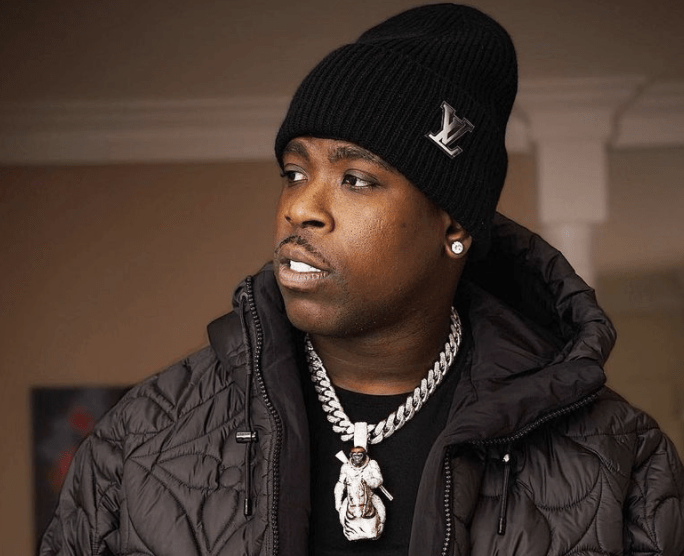Now that Casanova has surrendered to federal authorities to face racketeering charges, prosecutors want him and all but one of his 17 co-defendants to stay in jail for the duration of the case. In a legal motion unsealed Thursday morning, federal prosecutors detailed the allegations against 18 alleged Untouchable Gorilla Stone Nation members and associates, describing the group as “a violent Bloods gang that operates in New York State and across the country.” Casanova, whose real name is Caswell Senior, caught three charges: racketeering, conspiracy to distribute narcotics, and possessing guns in furtherance of a drug trafficking conspiracy. He faces a mandatory minimum of 15 years if convicted as charged. James Kousouros, Casanova’s attorney, recently told the New York Times that Casanova “is fully confident that he’ll be exonerated when all the facts are brought forth.”
Klass murda – Big Ape Ft. Casanova:
In a 35-page letter to the court, federal prosecutors detailed why they want 17 of the 18 defendants to remain in jail. The one exception is Shanay Outlaw, aka “Easy,” whom authorities describe as essentially an accountant for the gang. In Casanova’s case, prosecutors describe him as a source of drugs for “two of the gang’s most violent members,” and allege he has used his status as a rapper and his social media accounts to “pay homage” to the gang. “For example, he appeared on a gang anthem this summer, ‘Big Ape,’ which has garnered over 1.8 million views on YouTube since June,” prosecutors wrote, later adding, “In addition to publicly promoting the gang and glorifying its activities (sic), Senior is also a drug supplier for Gorilla Stone.”
Daniel Horowitz, a California-based attorney who has appeared on CNN, MSNBC, and Court TV as a legal expert, told VladTV that if the prosecution motion succeeds, the defendants are almost guaranteed to spend years in jail while still legally presumed innocent.”They’ll be lucky to go to trial in two years,” Horowitz said, noting that much of the evidence is based on wiretaps. “They have 10 years of drug dealing and racketeering allegations. The attorneys aren’t even going to be done organizing the files for months.” At the time of the federal indictment, Casanova was on pretrial release facing state charges of robbing a man of a cellphone in a Manhattan diner. Some of Casanova’s co-defendants face much more serious charges, including murdering a 15-year-old boy, then stealing the car used in the murder from an impound lot and subsequently torching it. Another co-defendant is accused of a “gunpoint drug robbery in a Peekskill hotel room where the victim was savagely beaten.”Horowitz predicted the case would be “a race to see who’s going to snitch first.” “That’s what happens in these cases,” he said. “Once you have a federal charge that carries life, suddenly someone finds some complaint they have about a co-defendant. They say, ‘Oh, he wasn’t nice to me cuz he didn’t give me a cookie with my milk two years ago,’ and they start snitching.”
Evidence the FEDs used in Casanova case:









